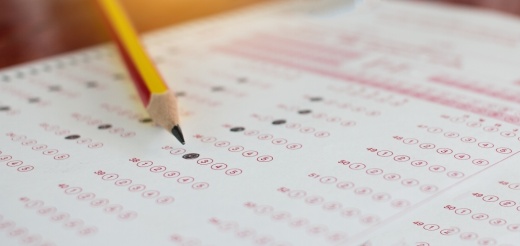The State of Texas Assessments of Academic Readiness, or STAAR, results released June 28 showed an increase from spring 2019 to spring 2021 in the number of Lake Travis ISD and Eanes ISD students who did not achieve a passing grade, according to data from the Texas Education Agency.
The decline in performance reflects a statewide trend that Texas Education Commissioner Mike Morath attributed to learning disruptions caused by the coronavirus pandemic.
“This was not a year like any normal year that our students have had to face, that our teachers have had to face. The impact of coronavirus on what school means and what school is has been profound,” Morath said during a June 28 press conference. “And unfortunately, the impact that the broader conditions of the coronavirus have had on schools in Texas and what ... will likely be throughout the United States is significant.”
Lake Travis ISD
In every grade level, the number of students in LTISD who received a Did Not Meet result in math or reading increased in spring 2021. According to the TEA, a student that receives this designation “doesn’t have enough understanding of the material and did not meet the grade level learning goal” and did not achieve a passing score.In spring 2021, 33% of seventh-grade students received a Did Not Meet result in math compared to 16% in spring 2019, and this percentage increased to some degree for each grade level.
Similar scores occurred in the exam’s reading section. Notably, the rate of fourth-grade students who did not receive a passing score doubled from 2019 to 2021.
Eanes ISD
Nearby district EISD also experienced an increase in students who did not meet their grade-level goals.
In spring 2019, 5% of EISD fourth-grade students did not receive a passing score in the exam’s math section. The rate increased to 12% in 2021.
While the percentage of LTISD and EISD students who did not meet their grade level requirements increased, students still performed better than the state average, per STAAR results. Overall, math reflected the largest drop in statewide proficiency across all grade levels, according to the June 28 press release.
The state saw a 15% drop in the rate of students who are doing math at or above grade level as well as a 4% decline from 2019 in the percentage of kids who are reading at or above grade level, Morath said during the June 28 conference.
However, districts with the highest percentage of in-person learners largely avoided these learning declines, the release states.
These results highlight the need to provide educators with the necessary resources to address student learning loss, which Morath said will be accomplished through recently passed legislation.
Under House Bill 4545, “parents of eligible students who took an assessment will have the opportunity to access high-performing teachers as well as benefit from additional tutoring,” according to the release. Additionally, TEA will provide instructional materials, additional teacher support and aid to districts this summer and in the coming school years.
Additional reporting by Matt Stephens





